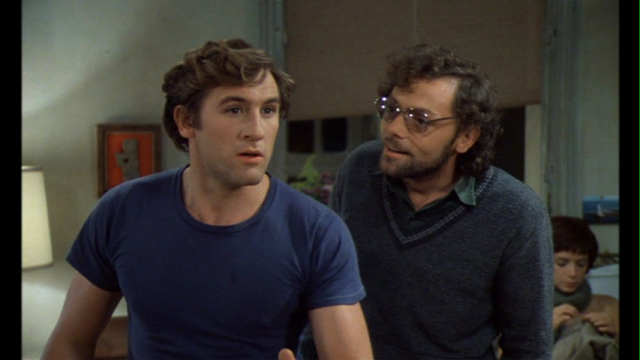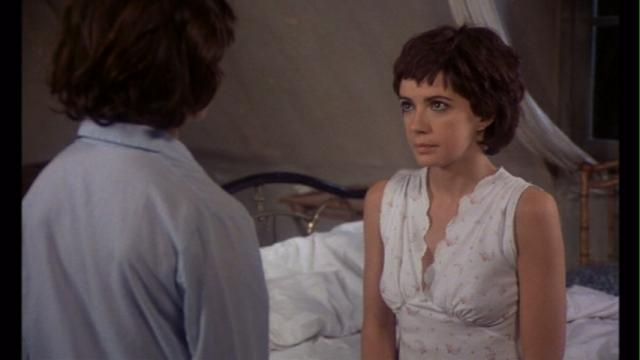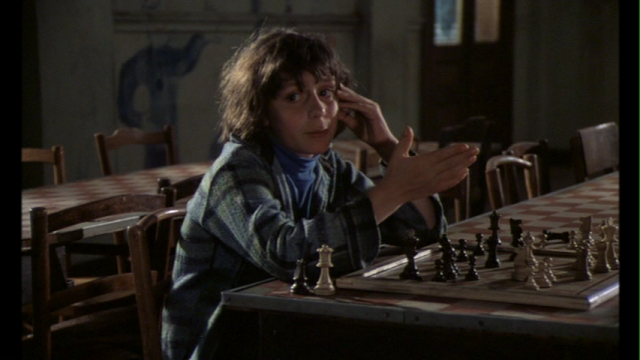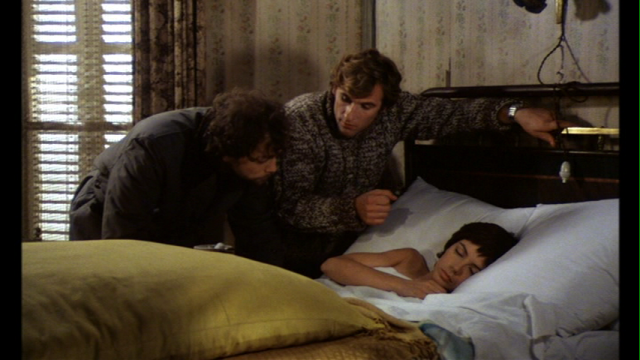Get Out Your Handkerchiefs (1978)
“Why don’t you just give up on me? I’ve jinxed every guy I’ve known.”
|
Synopsis: |
|
Genres, Themes, Actors, and Directors:
Review: More so than any other director, Blier seems utterly unafraid to demonstrate his incomprehensibility of women. Here, Solange is a literal archetype of feminine mystique — a beautiful woman so low in affect, and so single-mindedly focused on getting pregnant and knitting, that Dewaere openly questions at one point whether she might actually just be dumb. As noted above, she ultimately becomes merely a passive foil for Raoul and Stephane’s friendship — she’s a project they work on together feverishly, collaborating like giddy schoolboys. Once Liebman’s 13-year-old Christian enters the story, however, things take on a decidedly discomfiting tinge, and viewers applauding themselves for accepting the unconventional love triangle established thus far may find their sense of propriety tweaked, as it eventually becomes apparent that Liebman will function as a weirdly Freudian child-love interest for Solange. Liebman is fabulous in an undeniably tricky role: he projects otherworldly maturity in spades, and is clearly meant to come across as the “oldest” (emotionally-speaking) of the three central males in the film. The story’s denouement, naturally, takes on all sorts of wild and unexpected turns, and may or may not feel satisfying — but at the very least, Blier lives up to his reputation as an auteur who’s unafraid to go where few others will dare. Redeeming Qualities and Moments:
Must See? Categories
Links: |





One thought on “Get Out Your Handkerchiefs (1978)”
First viewing. Yes, a must. Another rollicking romp from Blier.
As you watch the first few sequences of this, you may begin to imagine the glee Blier feels as, in stream-of-consciousness fashion, he flits from complication, to development, to complication, adding and subtracting characters as needed. All of which is patently absurd as we watch. (Of the earlier sequences, I particularly like the one in which Depardieu leaves the restaurant, only to directly start up a conversation with a female stranger about his wife – which results in the stranger returning inside the restaurant with Depardieu to help the wife’s situation. It’s the kind of this-would-never-happen sequence that Woody Allen threw into ‘Annie Hall’.)
From what I’ve seen of Blier’s work, it seems one must simply abandon oneself to him because all bets appear to be off each time. Which tends to make his work such a breath of fresh cinematic air.
As I said in my post on ‘Menage’ – and as is true with ‘GOYH’ – this tricky, seemingly improvisational material, needs a go-for-broke cast and here once again Blier succeeds. Depardieu is a wonder, esp. with the quickness of his retorts, forever leaving the audience on their toes to follow his logic. Dewaere – sadly, an inexplicable suicide not that many years later in life – is utterly charming throughout (esp. in the scene in which he realizes he’s genuinely in love with Laure). As for Laure, it takes an actress of great skill to get the non-verbal mileage (reactions, emotions, etc.) that she manages with less lines than her co-stars. And, of course, Liebman manages to steal the show: no easy task, considering the talent of the trio he’s up against.
A very satisfying film (even, for me, up to the end).
Fave dialogue exchange –
“It’s because she can’t bear children.”
“Why? What do they do to her?”